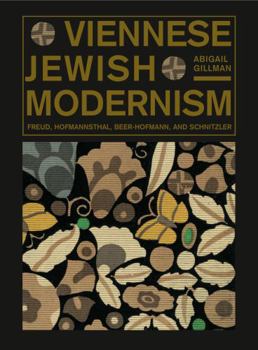Viennese Jewish Modernism: Freud, Hofmannsthal, Beer-Hofmann, and Schnitzler
(Part of the Refiguring Modernism Series)
In Viennese Jewish Modernism, Abigail Gillman challenges the conventional understanding of modernism as simply a break from tradition. Until recently, the study of Jewish modernism has centered on questions of Jewish and non-Jewish identity, generally ignoring the role Judaism played in the formulation of European modernism as a whole. By focusing on the works of major Viennese authors and thinkers--Freud, Hofmannsthal, Beer-Hofmann, and Schnitzler--both within and outside the contexts of Jewish identity, Abigail Gillman provides a profound new perspective on modernism.
Viennese Jewish Modernism draws together three central turn-of-the-century cultural phenomena: the breakdown of traditional modes of transmitting the past to the present; the unprecedented Jewish contribution to Viennese culture as a whole; and the development of a specifically Jewish modernism in Europe. Through her consideration of the larger questions of memorialism and memory, the construction of history and identity, and the nature of modernism, Gillman demonstrates that modernism is powerfully drawn to the past and actively engaged with tradition.





